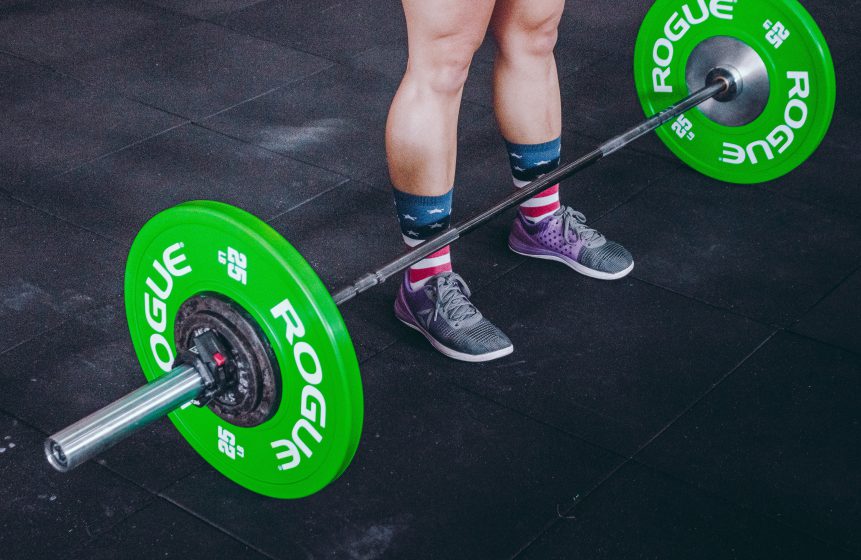We look at what our culture’s fascination with ‘wellness’ can teach us about our approach to death. There’s a whole lot of truth in the benefits of a healthy lifestyle, but when it comes to the “wellness” trend, it’s a movement saturated in exaggerated truths and death denial.
“Wellness” is a booming industry, with not just flawless people on Instagram but the media pressing us to ditch the gluten and take up a course of punishing exercise classes. As a collective trend that’s swept through each generation – both peddled to so-called millennials and used as a kind of escapism for those reaching a “certain” age – it’s taken on a mythical quality. Based on the assumption that the correct regime of diet and exercise might stave off not just a fleshy stomach but (let’s face it) death, as a belief system for our celebrity and image-obsessed culture it’s easy to get hooked.
But with the wellness industry losing some of its fallibility (to point you to the most sensational headline, look no further than the wellness blogger who faked brain cancer only to convince followers she’d cured the disease with a clean-eating diet), the cracks in its hold on us are starting to show. Before you know it, you’re pouring out a protein shake while at the same time thinking with uncertainty whether you’ll look back on your life without regret or an aching sense of “What if?” This Thursday night past time wasn’t indicated to in the adverts.
Death, dying and disease become a kind of symptom of our failure to embrace well-being and self-care. This is the line Barbara Ehrenreich takes in her new book, Natural Causes, a sharp and lively indictment of the wellness trend, where we pressure ourselves into the demands of a certain lifestyle driven by our anxieties surrounding illness or dying, and the industry that preys off of them.
Ehrenreich outlines that we now treat exercise as a form of labour: something which is measured, timed and offered up by insurers and employers. On the flip side of this, those who smoke, don’t eat well (or can’t afford to) or who don’t exercise enough (or don’t have the time to) are seen as people who have failed, in a way. In the quest for living longer, we can’t win.
The pressure we put on ourselves to lead a healthy lifestyle plays into the companies out there that are more than happy to supply what we think we need. While the wellness industry accounts for 5% of all global economic output, including a value of around $3.7 trillion in the US, this only signals to the massive profit to be made from our society’s anxiety around healthy living. Undermining the trend’s narrative of inclusivity, that hiding in all of us somewhere is a propensity for suppleness of mind, spirit and midriff, is the fact that “wellness” actually isn’t for everyone.
When you can buy an app on your smartphone that teaches you how to meditate using an interface that’s reminiscent of the latest video game, then you know healthy living has become just another commodity. If you want to be healthy, we’re being told, you need a bit of spare cash. At a London Wellness Centre, consultation for a basic “Health MOT” starts at £175, with a follow-up hour for £120. An hour and 15 minutes of “Rolfing” at Evolve Wellness in Kensington – a practice that “works through the connective tissue of the body from feet to head in relation to gravity” to allow you to be “free of pain” – costs £100. A course of 10 sessions is recommended. It’s less expensive to accept that there’s no fighting ageing and death, but the appeal of false comfort is still a strong one; free of pain – at last! – but in crippling debt, Rolfing sounds just brilliant, actually.
Humans’ anxiety surrounding death, dying and disease isn’t new, and it certainly didn’t appear with the first Instagram blogger. Instead, we can even trace the clean-eating trend back to the beginning of “civilisation”, to a story based on an ancient Sumerian poem about Gilgamesh. In an obsessive pursuit of immortality, the hero of Mesopotamia’s quest was to find anything to stave off death, including an assortment of foodstuffs. Even the 17th century philosopher Descartes, most famous for his aphorism “I think, therefore I am“, his formulation of the fact we can doubt many things except our own mind’s existence, stuck to a diet of frequent low-calorie vegetarian meals in order to stave off death. He died aged 54.
The enduring complexity of our relationship to death and dying – the evolutionary trait we’ve honed in order to keep us away from mortal danger supplemented by our higher reasoning capacity to work out that, yeah, death is actually inevitable – isn’t going away any time soon. But the marketing of wellness sells the trend back to us with the kind of certainty reserved for scientific journals or individual’s convinced of their devotion to interplanetary deities. Compared to the graphic images on cigarette and tobacco packets, the rhetoric of wellness marketing is a form of all-or-nothing fear-mongering that deliberately picks at our most inane insecurities, without the facticity of cigarette packaging.
We won’t encourage you to cancel your gym membership just yet, but why not counterbalance this desire with a friendly reminder that nothing’s going to stave off death. HIIT and hard truths.
Find out more
See also our post on the blog at human’s cognitive ability to recognise their own animal fear of death and surprise – How often do we think about death?





